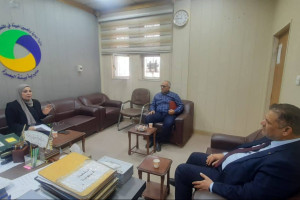
The University of Basra organizes a symposium on climate change and environmental sustainability
Media and Government Communications Division
Media of the Marine Sciences Center
The Marine Sciences Center at the University of Basra organized a scientific symposium on climate change and environmental sustainability under the slogan “Scientific Research for a Better Environment”
The symposium included a number of lectures, including a lecture presented by Dr. Arafat Rajab Ahmed on aquaculture in Basra between climate change and environmental sustainability, in which she focused on the environmental challenges faced by the Shatt al-Arab due to ill-considered human intervention. She also emphasized the necessity of not wasting the precious water of the Shatt al-Arab in aquaculture projects. Traditional and modern environmental methods such as closed systems and biofloc technology to ensure the sustainability of water resources.
Dr. Iman Abdullah Abdul-Aali also gave a lecture on the role of bacteria in reducing global warming and talked about global warming and its causes.
Dr. Jihad Makki Majeed presented a study on the cultivation of mangrove trees on the Iraqi sea coasts and their role in confronting climate change, through which he discussed the importance of mangrove trees on the Iraqi sea coasts in confronting climate changes and global warming because of the effectiveness of these trees in absorbing large amounts of greenhouse gases that cause global warming. And its role in environmental restoration.
The symposium recommended the need to support the holding of seminars and workshops related to the sustainability of the Shatt al-Arab, provided that they are quarterly, and to adhere to environmental laws when establishing aquaculture projects and to be supervised by specialists, in addition to forming a committee to work on coordinating efforts between scientific departments to form a scientific team from various specializations, in addition to studying the impact of gaseous emissions. Waste discharged into public water affects life diversity and the environmental damage it causes.
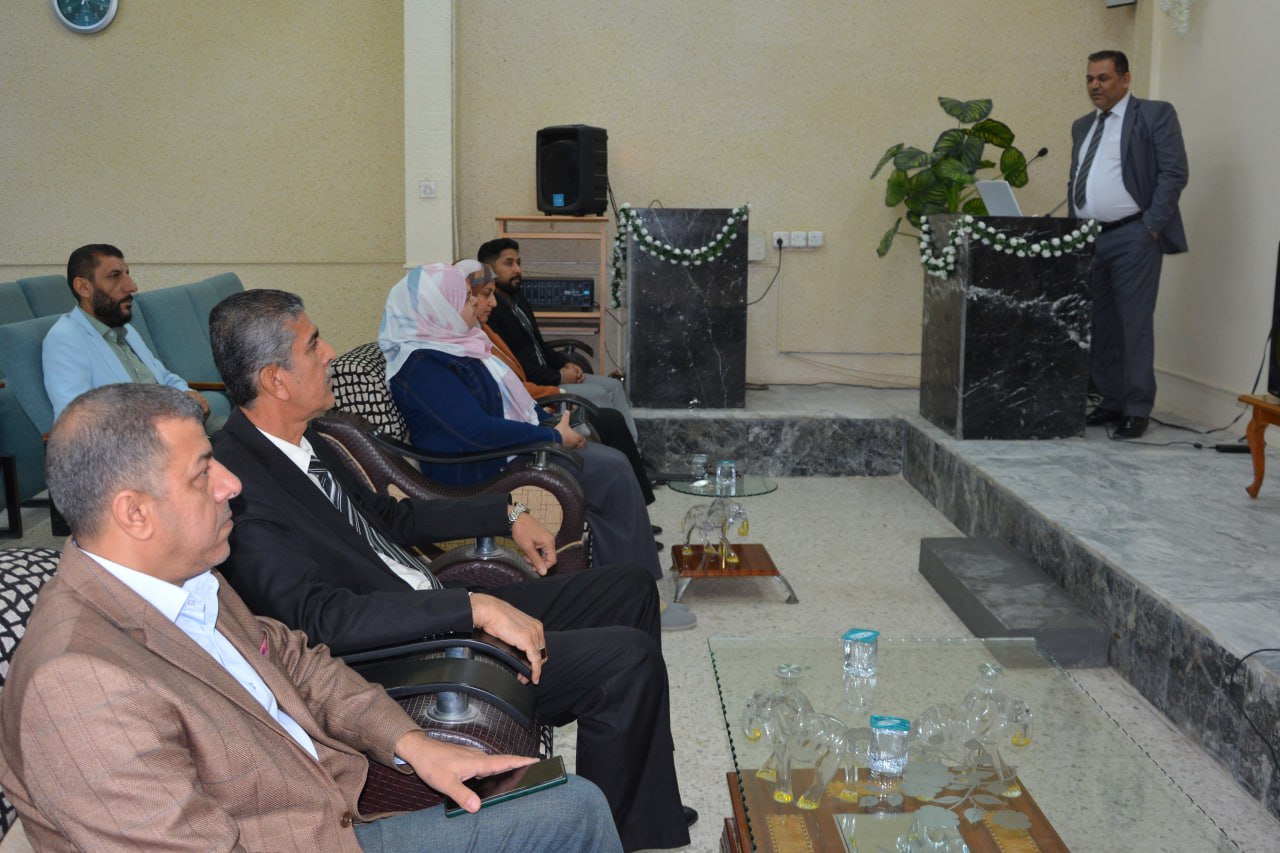
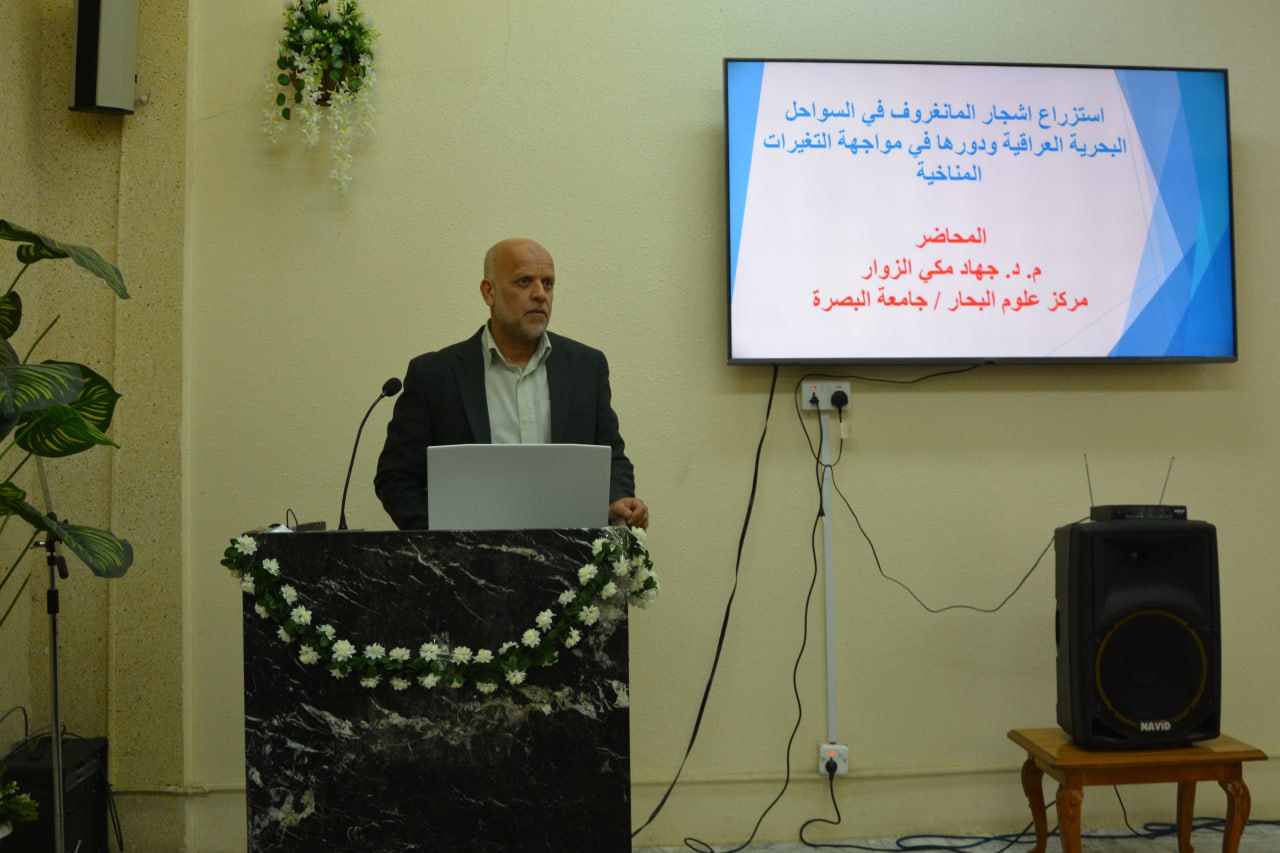
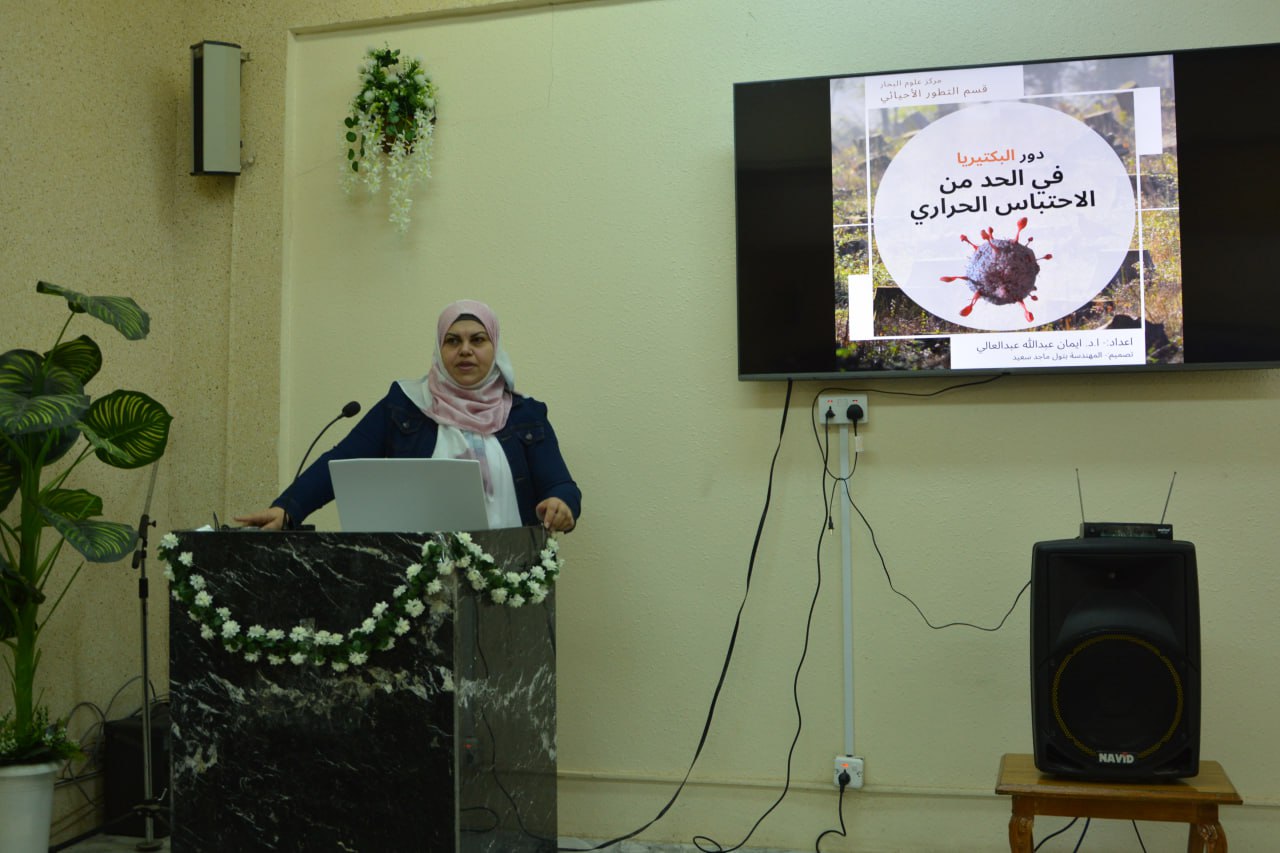

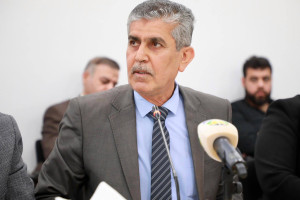
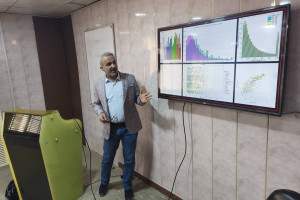
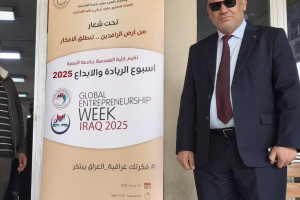
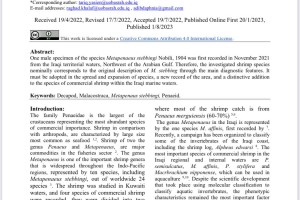
.jpg)
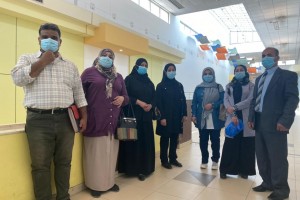
.png)